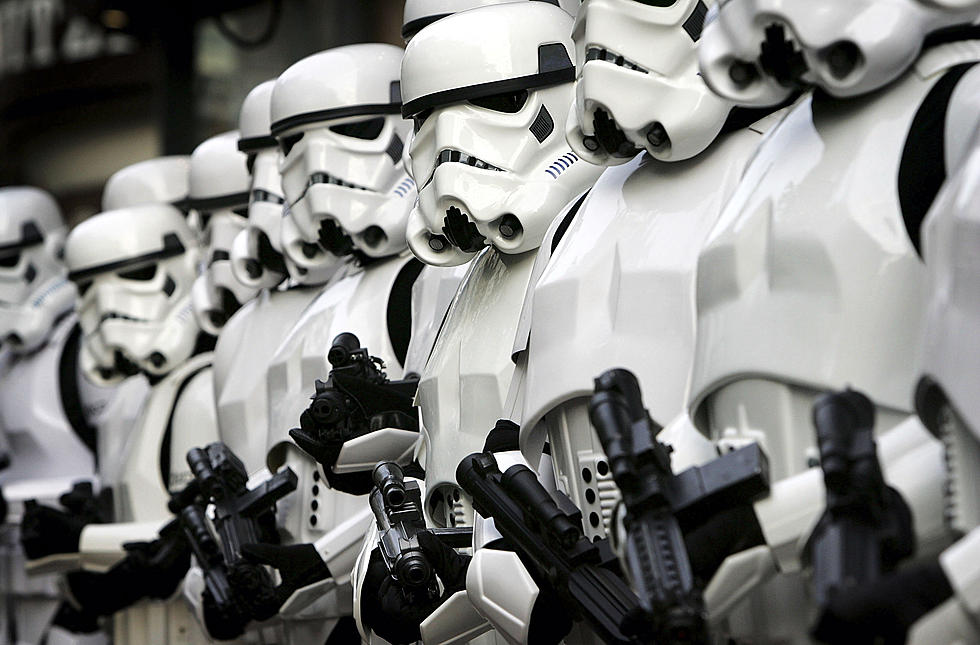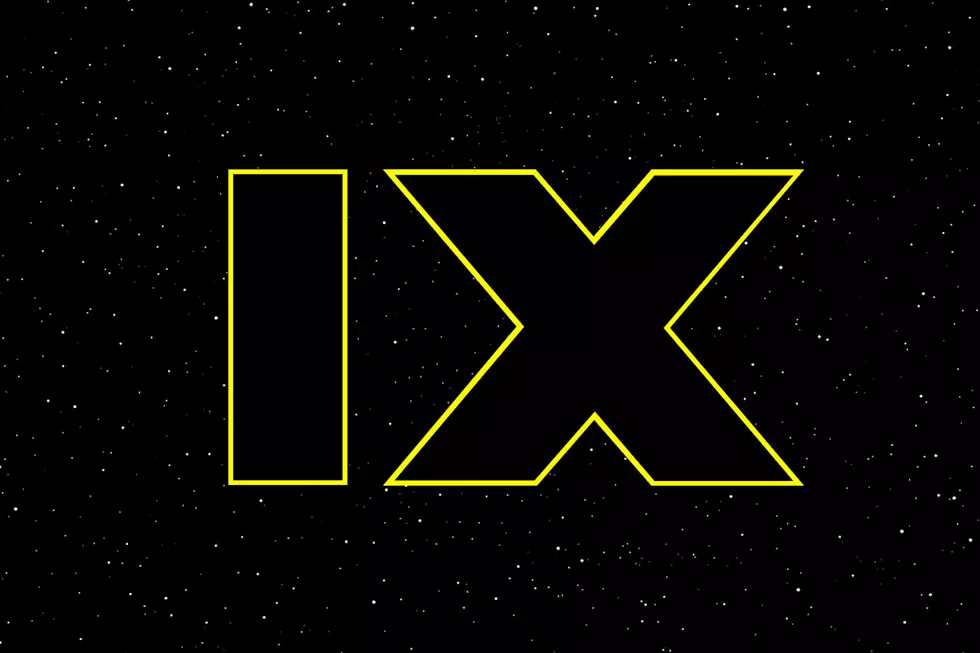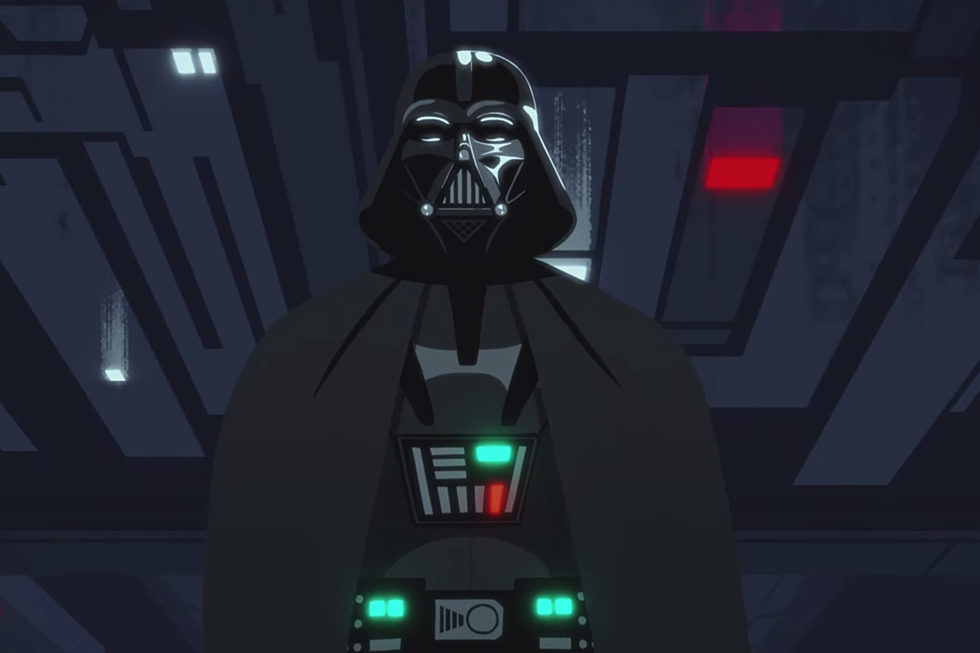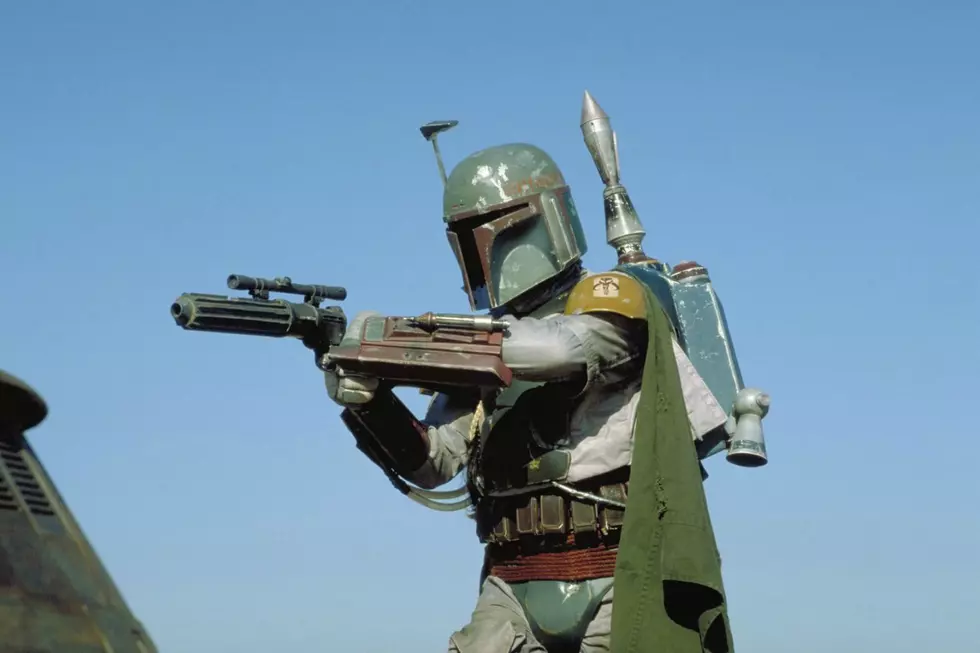
‘Star Wars: The Last Jedi’ Is Different Than ‘The Force Awakens’ – And That’s a Good Thing
The following post contains SPOILERS for Star Wars: The Last Jedi.
I certainly expected to hear some criticism about Star Wars: The Last Jedi. It is not a perfect movie. The middle section sags, the scenes on the casino planet Canto Bight feel particularly superfluous, and the codebreaker character played by Benicio Del Toro never quite gels with the rest of the cast. The ending is a bummer in some ways, and as much as people claim they love the darkness in The Empire Strikes Back, I suspect they’re turned off by the same thing here.
All of those critiques are fair, and not surprising. The complaint that has surprised me in the early wave of reaction to Rian Johnson’s Star Wars movie is one I’ve heard echoed in a lot of places. Namely that the film is too different from The Force Awakens, and that it doesn’t pay off some of the dangling threads from that film. On the day of The Last Jedi’s release, for example, TheWrap published a post called “10 Plot Threads The Force Awakens Set Up That The Last Jedi Blew Off,” outlining in pretty cranky fashion all the ways The Last Jedi zagged where it could have zigged, and generally upended fan expectations.
For example, The Force Awakens set up Kylo Ren as the leader of a group called the Knights of Ren; they never appear in The Last Jedi. The Force Awakens turned the identity of Rey’s parents into one grand conspiracy. The truth, as revealed in Last Jedi, is simple: Rey is no one special. And the previous film made Snoke out to be this new Big Bad in the galaxy, only to have Kylo Ren murder him right in the middle of The Last Jedi with a single flick of a lightsaber.
TheWrap isn’t wrong about any of this stuff; they were all notable plot threads and characters in The Force Awakens, and relatively minor (or totally insignificant) ones in The Last Jedi. But where some fans see that as a major flaw with the film, I see it as one of its greatest strengths — and proof that The Last Jedi is the work of an artist, rather than the homogenized product of a corporation’s marketing and licensing interests.
It’s worth noting that Rian Johnson didn’t upend the Star Wars galaxy that much. Reading some of the negative reactions to The Last Jedi, you would think he had made a two-hour film about Jar Jar Binks trying to explain midi-chlorians to a bunch of Ewoks. Johnson may have messed with some of the side charactersm but all the core heroes and villains of The Force Awakens — Rey, Kylo, Finn, and Poe — are all present and accounted for, and each gets a moment to shine. There’s an epic space battle. There’s an incredible lightsaber fight. There are philosophical discussions about the nature of the Force. All the stuff that should be in a Star Wars movie is in this Star Wars movie. It’s just a Rian Johnson Star Wars movie, not a J.J. Abrams Star Wars movie.
After all, it was Abrams, not George Lucas, who turned the franchise into one giant mystery box. He was the one who introduced these new characters, and wrapped up so much of their backstories in secrecy. There’s a segment of fandom that loves to obsess over these teases and clues, and they’ve spent the last two years imagining every possible scenario about Rey’s mother and father, or Snoke’s true identity (“Maybe he’s really tiny, and he uses a big hologram to make himself seem really large!” Uh, okay.) For the adherents of teaser culture, the movie itself is not the main event; it’s the conclusion to months and years of conjecture and prediction.
It can be fun to imagine the next movie in a franchise. But dismissing a movie simply because it did not conform to the version you had imagined is the dark side of cinematic speculation. To some degree, Johnson is in good company in this regard; the reception of most Star Wars films since The Empire Strikes Back has been met with a small but vocal backlash from fans who believe they know the material better than the people who actually make it. George Lucas, the guy who created Star Wars in the first place, went from revered cult figure to reviled pariah over the course of the prequels. In many cases, Star Wars fans were right to complain about Lucas’ efforts. But it’s also true that nobody hates a Star Wars movie quite like a Star Wars fan.
A lot of those fans simply want The Last Jedi, and every new Star Wars film, to look and feel exactly like the original trilogy. It shouldn’t be CGI; it should be practical effects. There shouldn’t be random people using the Force; only the Skywalkers are important. And so on. No wonder The Force Awakens was such a gigantic hit. It cleverly aped the structure of the first film, and leaned into the idea that it was made to be as much like 1977’s Star Wars as possible. Abrams filmed it on location instead of just using green screens. Whenever possible they built droids out of metal and plastic, instead of computer graphics. The Force Awakens was a throwback, and a very big hit.
Johnson was bold enough to break from franchise tradition and a few of its sacred rules. For some hardcores, that alone was a bridge too far. But what did they expect from the guy who made Brick and Looper, movies that upend genre tropes and defy expectations? This is one of the stranger aspects of modern Star Wars fandom: They want Lucasfilm to hire distinctive directors like Gareth Edwards (Rogue One: A Star Wars Story) and Phil Lord and Chris Miller (Solo: A Star Wars Story). Then, when those directors get sidelined or fired during production, they throw up their hands and say that Lucasfilm isn’t respecting filmmakers, and the producers have too much power, and they’re making all the movies look and feel the same.
But when Lucasfilm doesn’t fire a director, when they let him stick to his guns and make a more personal Star Wars film, they complain it’s too different from the rest. Well which is it? Do we want Star Wars movies made by a factory or by a craftsman? Because it can’t be both. It seems like some Star Wars fans crave the cachet and credibility that comes with having the biggest directors in the world attached to their favorite franchise. But they don’t want those directors to use the skills that made them successful in the first place. Unless, of course, their skills are pushing them in the direction of rehashing the old Star Wars stuff one more time.
Personally, I like being surprised, even by a Star Wars movie. I liked the places where Rian Johnson upended the mythos a little. And I loved the dismissals of some of J.J. Abrams’ vaunted puzzles. Not because I didn’t enjoy them or The Force Awakens; I did. But eliminating the secrets, expanding the mythology of the Jedis, and reconsidering what exactly a Star Wars movie can be, made it clear this wasn’t J.J. Abrams’ Last Jedi or even Kathleen Kennedy’s; it was Rian Johnson‘s. Love it or hate it, The Last Jedi had the unique stamp of a filmmaker of vision.
And if you did hate The Last Jedi, good news! J.J. Abrams will be back to direct Episode IX. He can bring back the Knights of Ren and have Kylo say “I tricked you Rey! Actually Darth Vader was your father!” The saga always continues...
Gallery - The Best Star Wars Easter Eggs in Non-Star Wars Movies:
More From KYYW 1470










